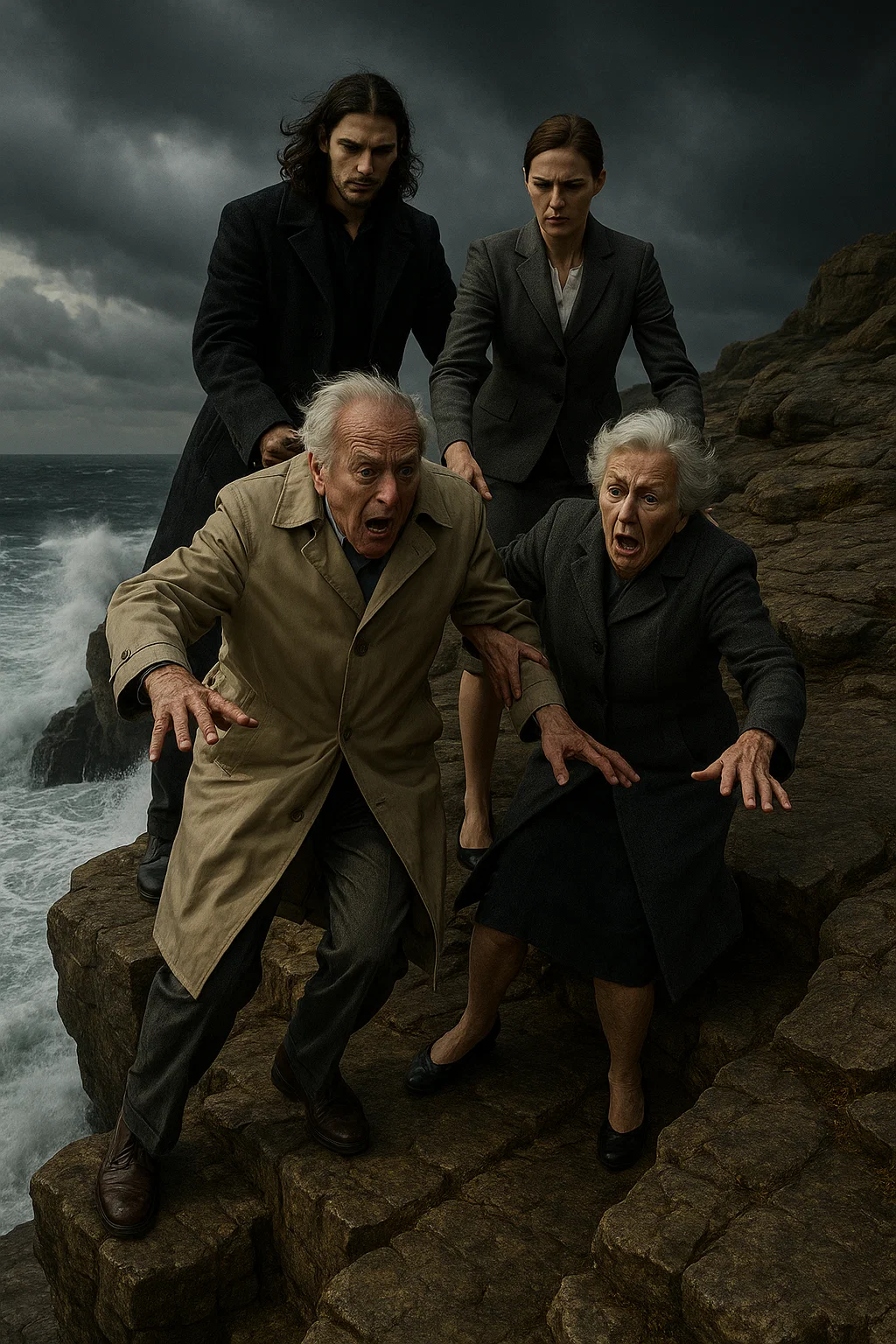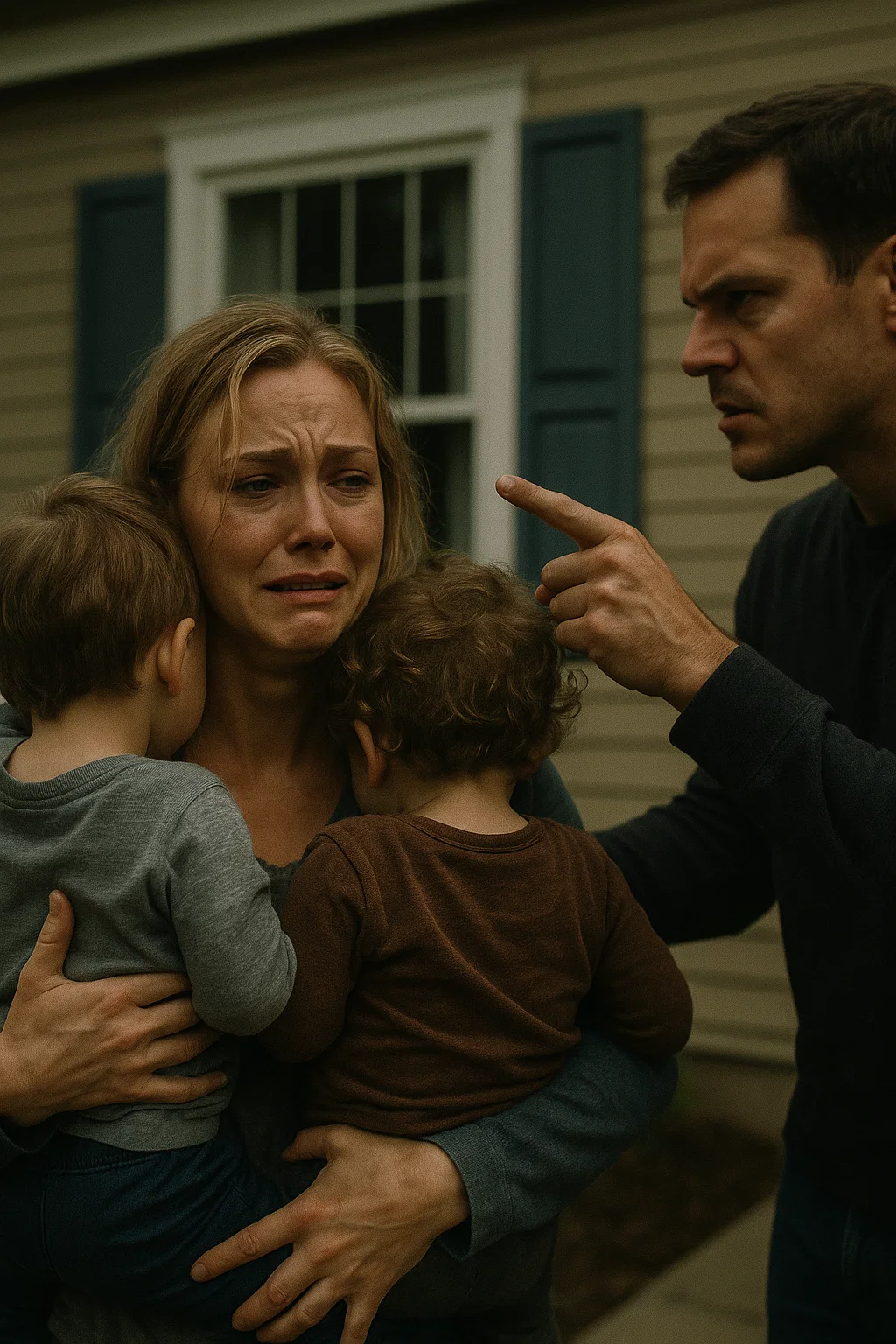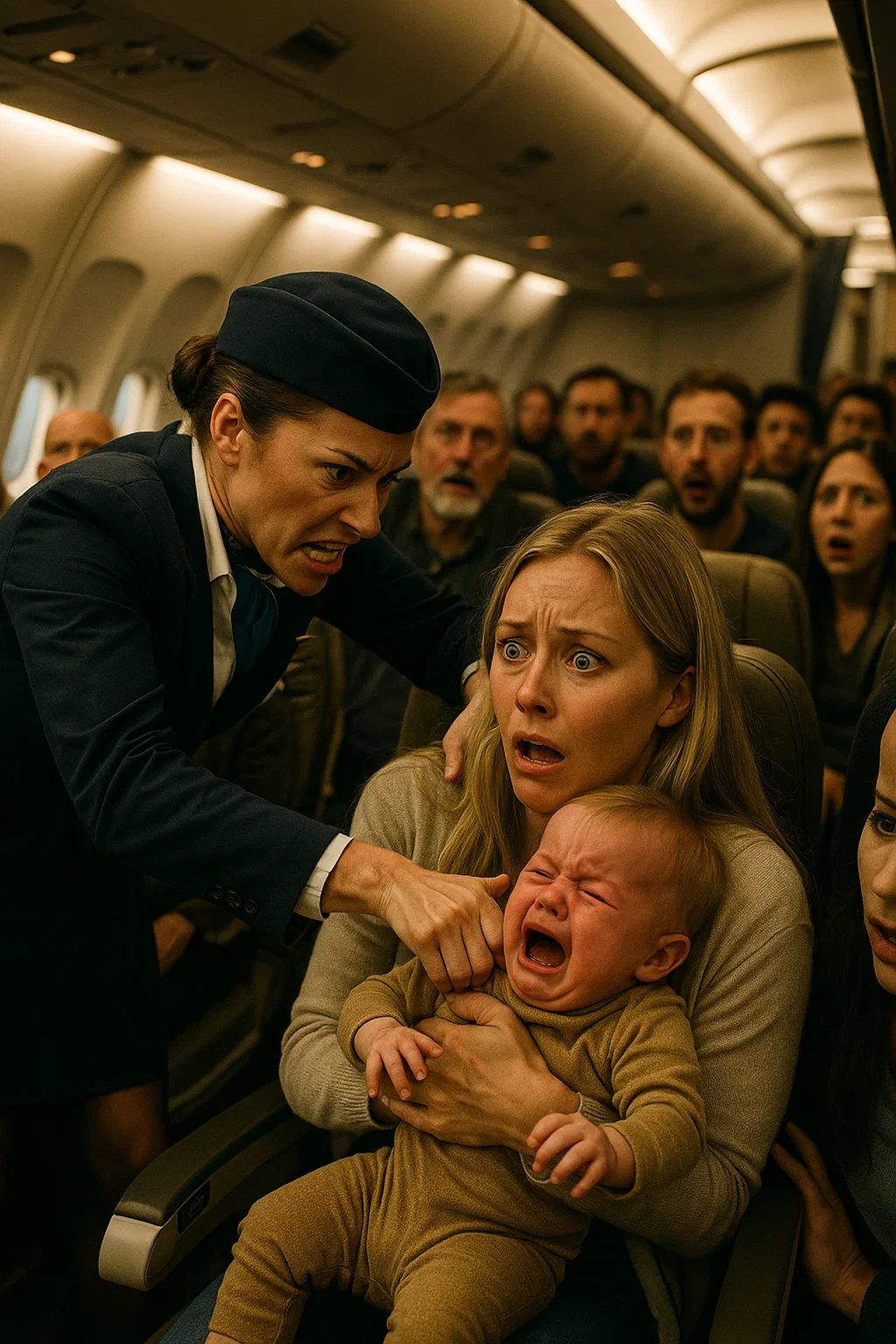I arrived early, when the air still tasted of last night’s rain, and set the small bouquet on my mother’s stone. Her name was crisp in the pale dawn: Agnes Miller — Beloved Mother. The widow’s bench where she’d read every Sunday was cold; the cemetery was quiet in that particular way places that hold memory always are — heavy with what people leave behind.
Gavin came up the lane ten minutes later with gravel in his shoes, breath coming hard. He didn’t stop at the stone; he stepped past it like a man trying to outrun his own shadow.
“You think you can come here and show off?” he said, and the words trembled with something that used to be love: a brother’s old, dark jealousy.
“I’m here to say hello, Gavin,” I answered. “I’m not here to fight.”
But he chose fight. He chose that particular ugliness that slides from mouth to hand so fast you can’t see the first movement. The shove drove me backward. The headstone raked cold along my shoulders. For a second — a ridiculous, whole-second — I thought this was a bad dream. Then the crunch of stone and the smell of dust told me it was real.
“This is where you belong,” he whispered. His face was gone red.

Someone coughed; someone else said, “Hey!” The sound of a dozen people shifting in the morning made the shove look like an act in a small stage play. The Bridge Club, my mother’s old friends, had arrived at the cemetery to bring flowers. Hearing raised voices from the lane, they had come toward us, not to gawk but to check for anything amiss.
Phones went out, but not to blast or to shame. They went up — a reflex of our connected world — and a murmur moved through the small crowd. One of them, Ruthie — a retired schoolteacher with a gentle way of speaking — walked forward, placing herself between us. She put a cool hand on Gavin’s shoulder and said, “You’re here for rememberin’, son. Not this.”
Gavin froze, his chest heaving. He twisted out of her grip like a wounded animal and took a step back. The phone lights blinked; people were recording but not for outrage. They recorded because they were witnesses now, and witnesses can choose what comes next.
I pressed my palm to the stone to steady myself. Gavin’s face broke into something ugly and then into something raw. He began to talk, at first to me, then to no one in particular.
“It’s not fair,” he said, the words falling out like stones. “She left everything to you. I worked the shop for twenty years. I thought— I thought she’d leave me something.”
Ruthie sat on the bench and said nothing for a long minute. Then she said, “Gavin, what happened? Tell us.” Her tone was more of a teacher than an interrogator. The small group hushed; the Bridge Club ladies clustered, eyes soft, not accusatory.
He told it then: the sleepless nights, the fight with the lawyer, the way he’d signed papers in a haze of anger because he’d believed the rumors he’d heard down at the diner. He told them about the man who’d offered to “help” with paperwork. He told them about calls he’d made and threats he’d received — or thought he received. The story unspooled: hurt, wounded pride, small betrayals making one big one.
As he spoke, the phone recordings shifted from evidence to memory. A neighbor named Luis — who’d recorded the shove because he was afraid — put his phone away and offered Gavin his handkerchief. “You should apologize,” Luis said, quietly. “To her. And to Mom.”
“I don’t know how,” Gavin said. He looked tiny in that wide place, and for a moment it felt less like shame than like a child stripped of armor.
I could have pressed charges. I could have screamed for police, made of this the ugly law story a hundred neighbors would read about and judge in their kitchens. Instead, the Bridge Club exhaled and decided to hold a different kind of court.
Ruthie stood and walked to the driver’s side of the car where my brother had left his keys. She set them on top of the hood and said, “You go home, calm down, and come back tomorrow. We’ll meet.” Her voice was stern, not because she wanted to punish Gavin, but because she understood something the police often miss: first shocks break people; then they either heal or harden.
Gavin obeyed like a man who’d been given a chance to steady himself. The crowd dispersed slowly, grave by grave returning to its hush, the phones tucked into pockets more as talismans than weapons.
That afternoon, community happened. Word spread: no police had been called. The Bridge Club had recorded the shove not to make a spectacle but to hold a family accountable, gently and publicly. They used the clip not as a viral cudgel but as a start of conversation. They summoned Gavin back the next morning, and he came. So did I.
The small group sat in the church hall. Coffee was poured. Someone baked the kind of lemon loaf my mother used to make. This was not a court of law; it was a small-town circle where the point was restoration not destruction. Gavin stood and spoke, hands trembling.
“I’m sorry,” he said, and it was small and human and exactly what needed to be said. He handed me an envelope — a child’s apology maybe, but there were notes inside: an accounting of the money he’d used, the men he’d trusted, the contractor who’d paid him for little things he couldn’t explain. He had bank statements; he had a tearful confession about hitting me.
We did not sign a binding document in that hall. We did not put him in handcuffs. We did, however, make a pact. Gavin agreed to pay back what he’d taken from the estate; he agreed to anger counseling; he agreed to let a mediator — someone from the community — help us communicate about the house. And he agreed to apologize to the town publicly, in a way his mother would have respected: at the community potluck two weeks later. The Bridge Club would be there to vouch for him.
It was not justice in the legal sense. It was, perhaps, harder: reparation and the slow, awkward work of trust. People who watched are different than records on social media. They are the neighbors who will see him at the grocery store and nod if he’s sincere, or look away if he is not. The choice rested on him.
Months later, he would still stumble. He’d go back and forth between humility and self-justification. It was human. He repaid some of the money. He missed sessions. He showed up at the potluck and read a note aloud — halting and honest. Some people applauded; others sat glum. I sat and felt little blooms of relief, the way a scab pulls free when it’s nearly unstuck.
At night I went to her grave again and again. Sometimes I thought about going to law — about getting an official record that would have hung on our family like soot. But then I would remember Ruthie’s face, the lemon loaf, the way the Bridge Club had kept their phones out not to castigate but to ensure the truth was seen. I thought of Gavin, reduced sometimes to a man who could not cope and sometimes rising toward one who could at least try.
This story doesn’t have a tidy moral. Shoves from loved ones do not always end in criminal records. Sometimes they end in community intervention, and that has its own strange power. It demands accountability without annihilation.
So I’ll end the way the Bridge Club likes to end everything: with a question for you, reader. If someone you love lashes out in shame and rage, would you press charges and close the door, or would you open a different door — invite the town in, record, witness, and then try a gentler but riskier path toward repair? Which kind of courage does our community need now: legal certainty, or the long work of restoring what was broken?





